If you are curious about the question “How long can cats go without food”, there’s a chance that you are concerned for your cat’s health and eating habits. Are they refusing to eat lately, or you are going somewhere and afraid that no one can feed them?
In this article, we will answer your questions and provide some basic emergency solutions so that your cat won’t starve. Let’s go.
How Long Can Cats Go Without Food - Longer Than You Think
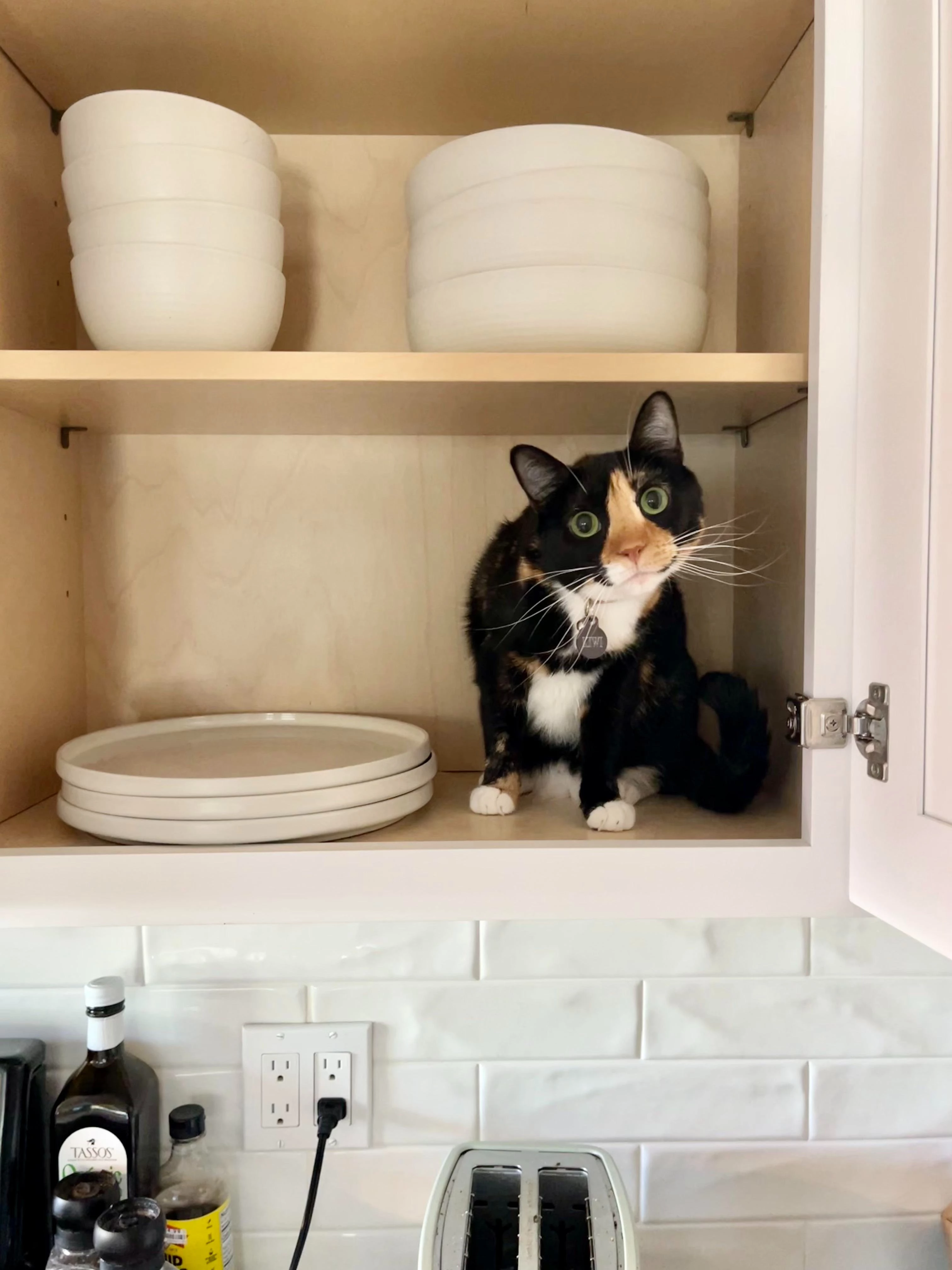 Source: Google Images
Source: Google Images
While humans can survive for 2 to 3 weeks without food thanks to our body's fat reserves, the same can't be said for our feline friends.
In theory, cats could endure about one to two weeks without food, as long as they have access to water. However, anything beyond 24 hours without eating is cause for concern. But do you know how long can a cat go without water? It's only about 3-4 days at max.
Cats don't fare well without proper nutrition, and the longer they go without food, the weaker they become. After just 2 to 7 days without sustenance, cats face a significant risk of developing hepatic lipidosis, a severe liver condition.
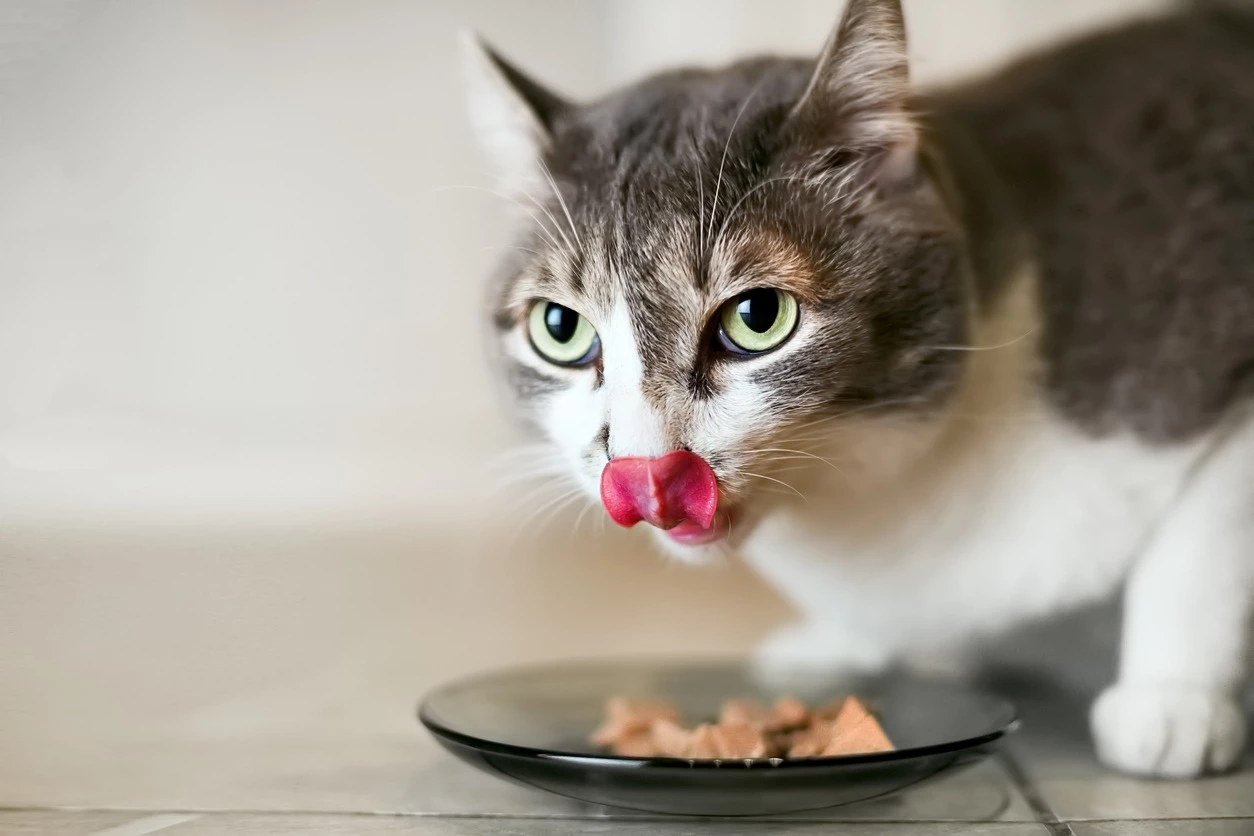 Source: Google Images
Source: Google Images
If your cat isn't eating or has significantly reduced its food intake for more than 24 hours, it's essential to seek veterinary care promptly. While the occasional day of fasting isn't likely to harm them, early intervention can be more successful and reduces the chances of your cat needing intensive treatment. Plus, a sudden loss of appetite in your cat might signal an underlying health issue.
If your furry friend is displaying signs of lethargy, frequent vomiting, or other worrying symptoms, don't wait beyond 24 hours—seek veterinary attention as soon as possible.
Being a carnivore is one of the reasons why cats can't go too long without food. Cats have evolved as obligate carnivores, which means their bodies are adapted for a diet primarily consisting of animal-based protein.
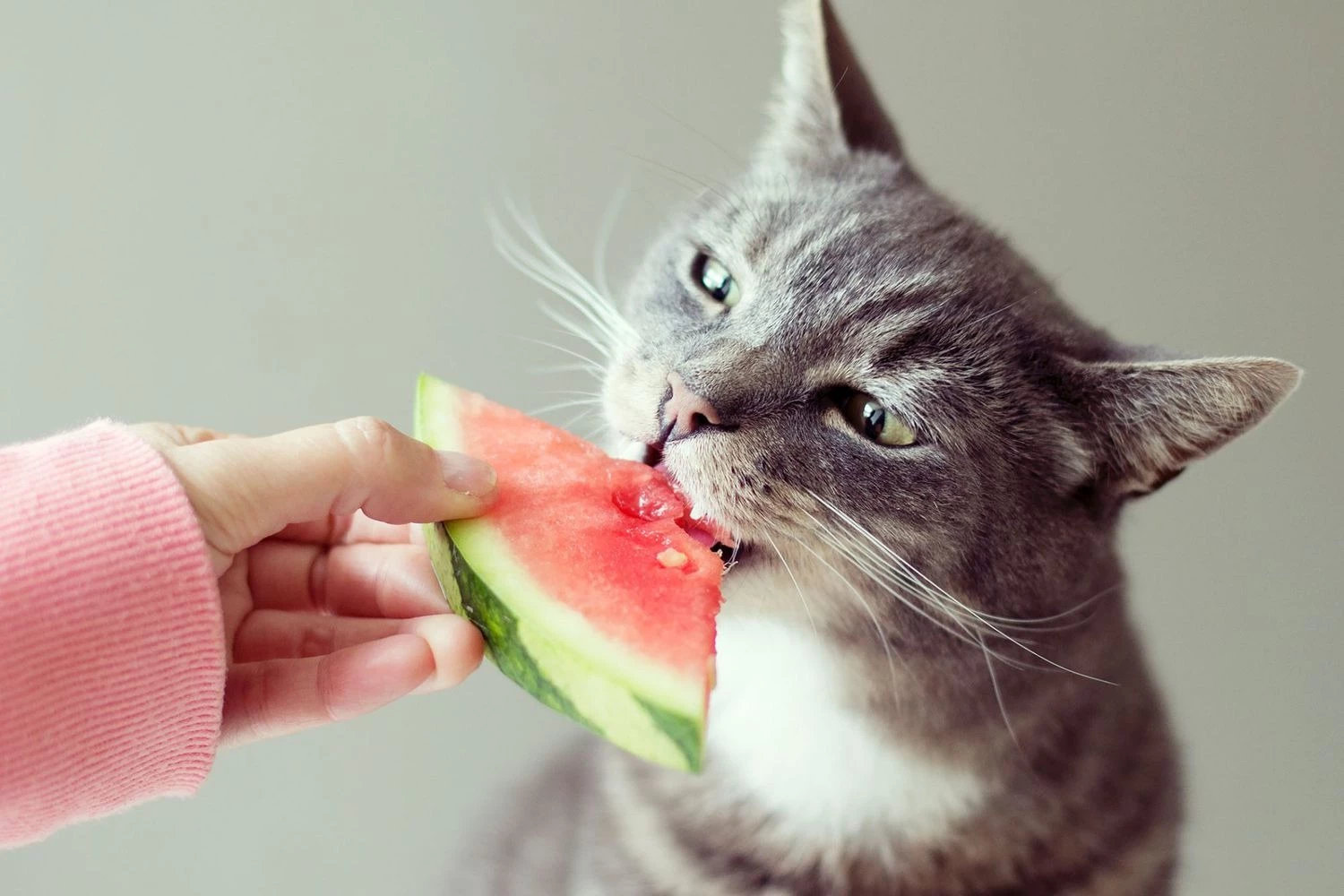 Source: Google Images
Source: Google Images
Unlike some other animals, cats lack certain enzymes necessary for efficiently processing plant matter.
Because of their carnivorous nature, cats have specific dietary requirements that include essential nutrients found in animal tissue. These nutrients, such as taurine, arginine, and certain vitamins, are crucial for their health and well-being. When cats don't receive these nutrients regularly, it can lead to various health issues, including the risk of hepatic lipidosis.
Therefore, it's essential to provide your cat with regular and appropriate meals to meet their nutritional needs and ensure their overall health and vitality.
How To Feed Your Cat In An Emergency?
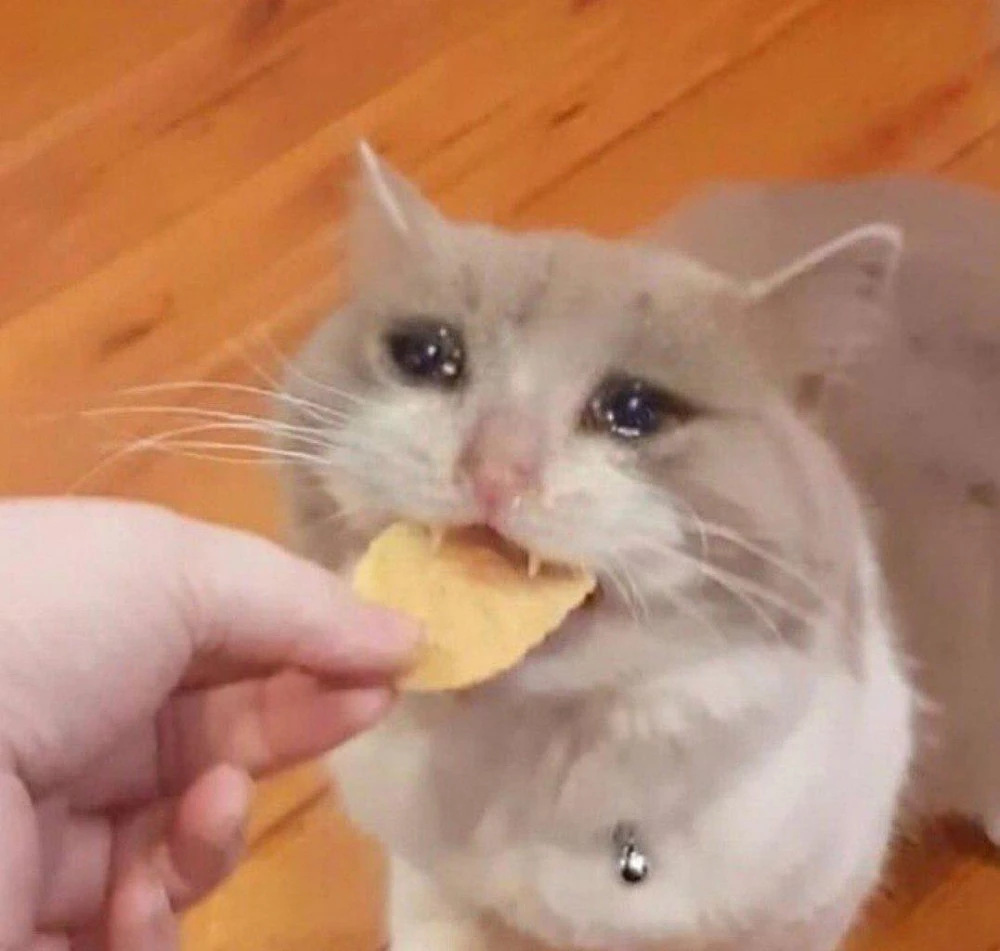 Source: Google Images
Source: Google Images
Sometimes, your cat can have underlying health issues that lead to their loss of appetite and sudden eating habit changes. Normally, you should still pay close attention to your cat’s diet.
If you're wondering about the right amount to feed your cat, Dr. Elizabeth Welch, Chief Medical Director at Stand For Animals, recommends a quarter cup of wet food and no more than one cup of dry food per day.
"Cats are carnivores, and incorporating some canned food provides them with an extra protein boost that dry food doesn't offer," advises Welch. When consulting your cat's food packaging for guidance, she suggests doing so cautiously, keeping in mind that cat food companies are in the business of selling cat food.
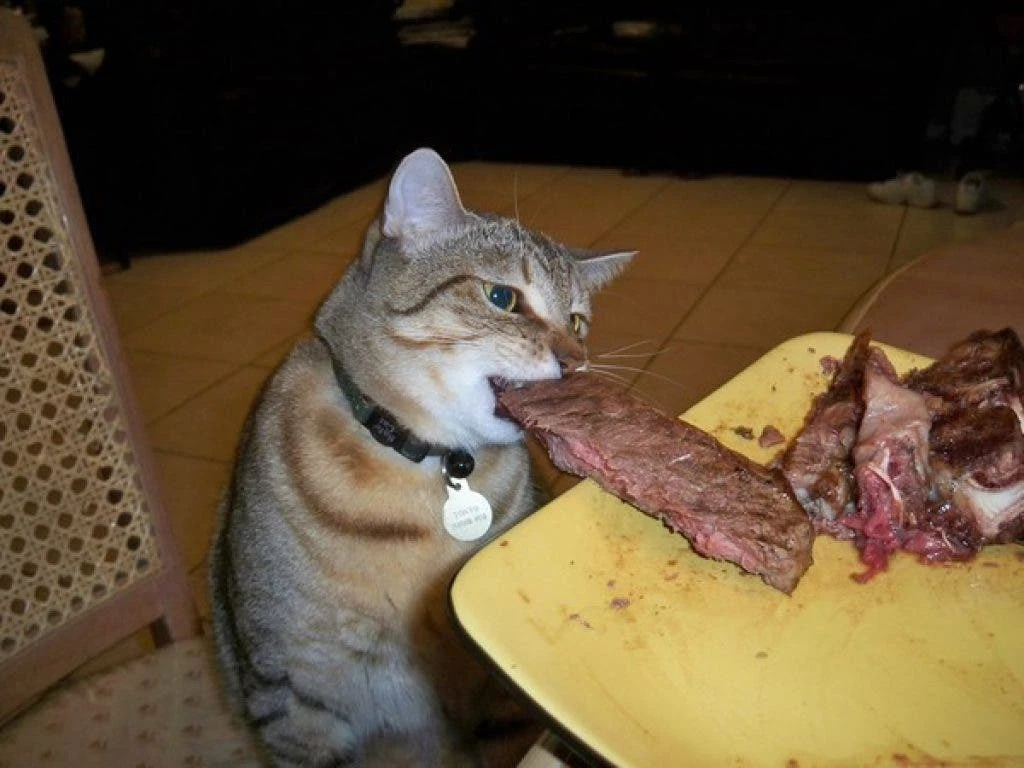 Source: Google Images
Source: Google Images
Of course, feeding recommendations can vary based on your cat's size and health condition, so don't hesitate to consult your vet if you have questions or need personalized guidance. Your cat's well-being is worth the extra effort and attention to their dietary needs.
In case your cat refuses to eat, or its food of choice is not available, you can consider giving it an emergency diet.
What You Need To Remember
While you may find human options in your kitchen to create a makeshift meal for your cat in an emergency, it's crucial to understand that these alternatives are not nutritionally complete and should not replace your cat's regular diet.
 Source: Google Images
Source: Google Images
These temporary solutions are designed to provide a stopgap measure until you can return to your cat's usual feeding routine.
When selecting ingredients, always opt for items that are low in salt and fat, as these can lead to excessive thirst and digestive issues in cats. Take into account any special dietary needs or allergies your cat may have and avoid any foods that could potentially make them unwell.
It's important to emphasize that cats have specific dietary requirements that must be met for their well-being. They require taurine, an essential amino acid, for their survival and proper functioning.
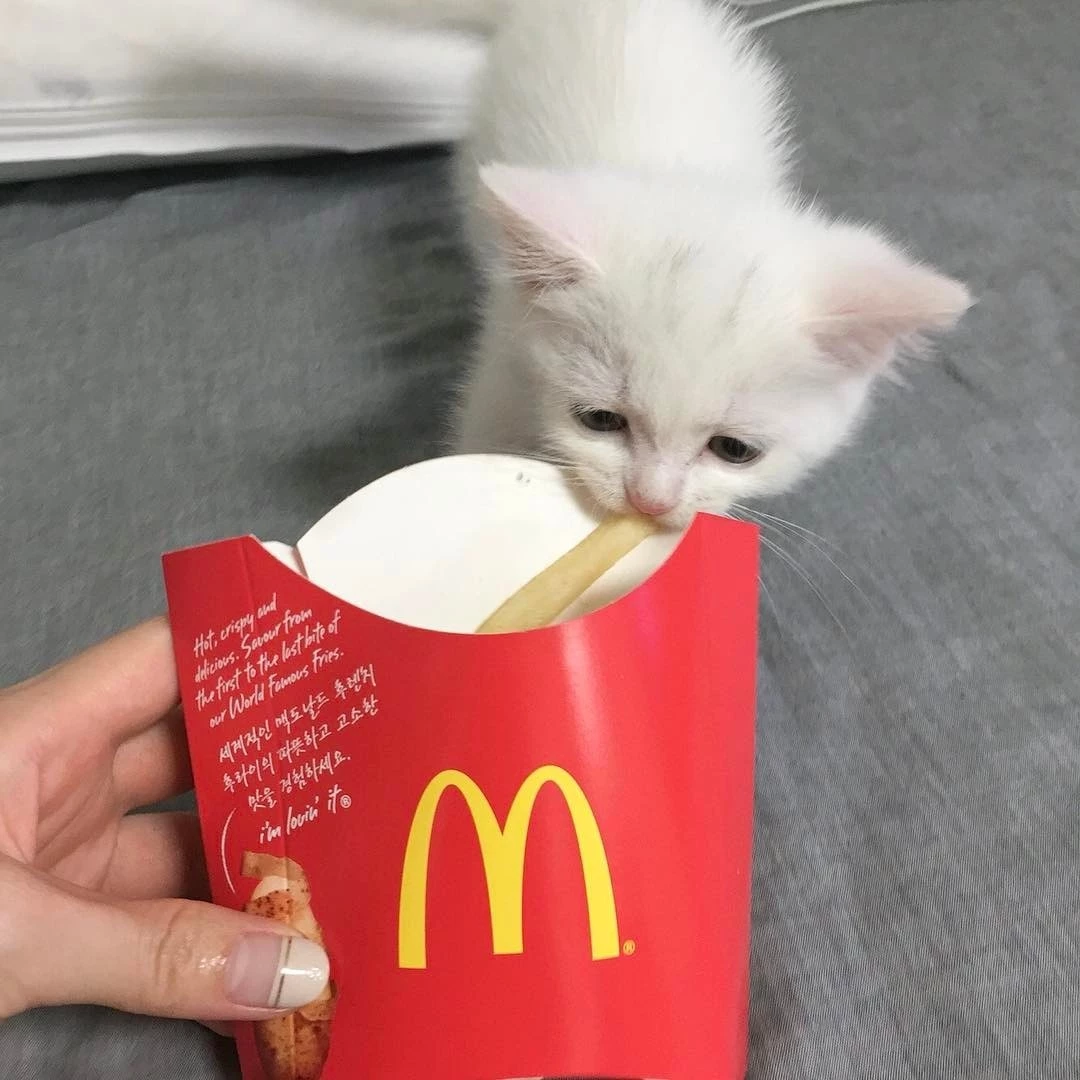 Source: Google Images
Source: Google Images
Taurine is typically found in commercially prepared cat food, so if you need to prepare your cat's food at home, you must consider additional measures to ensure a suitable and balanced meal for your feline friend.
Always consult with your veterinarian for guidance on meeting your cat's dietary needs in emergency situations.
How To Make A Proper Meal For Your Kitten?
It's indeed surprising how you can put together a meal for your cat using common ingredients you might have in your kitchen during an emergency situation. Here's a list of cat-safe foods that can help you provide a meal for your cat in a pinch:
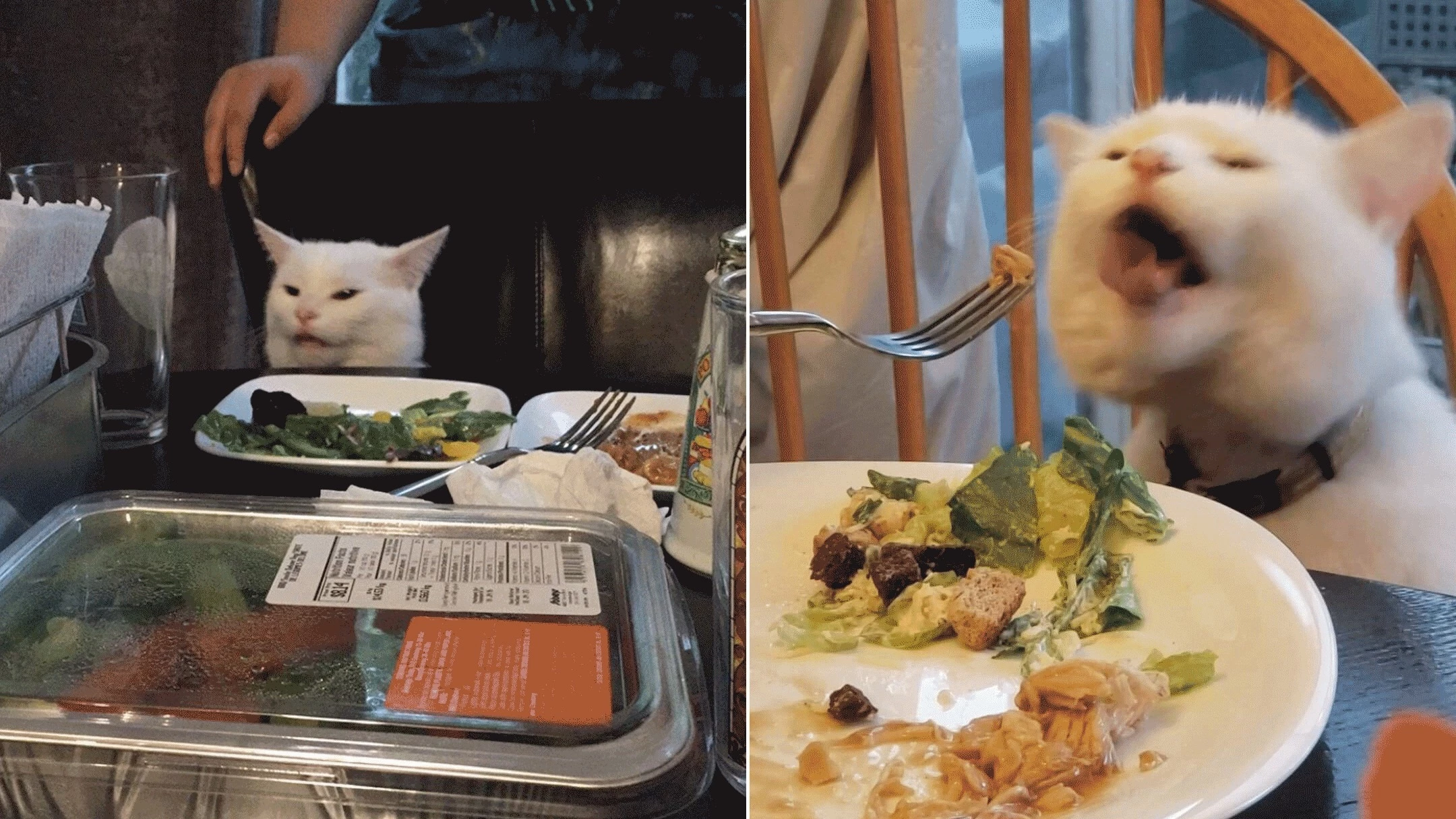 Source: Google Images
Source: Google Images
Fish: Oily fish like tuna or mackerel can benefit your cat's eyesight, joints, and brain.
Meat: Poultry and beef are natural choices for your carnivorous kitty. Cooked poultry is an excellent option, but avoid meats high in sodium like cold cuts or ham, as excessive salt can be toxic to cats.
Cheese: Sharing a slice or wedge with your kitty can be a good source of calcium and protein.
Berries: Blueberries and strawberries, lower in sugar and rich in antioxidants, can be shared with your kitty, although not in a pie.
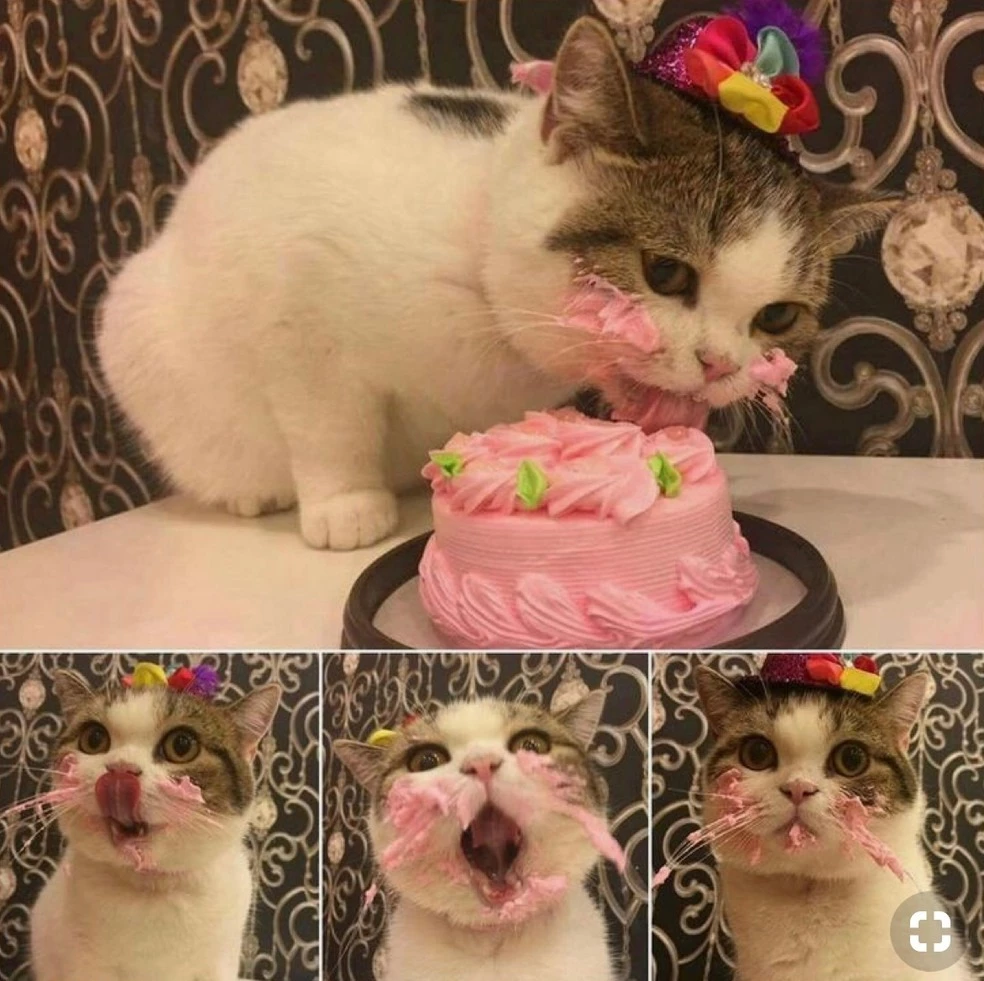 Source: Google Images
Source: Google Images
Rice: A small amount of white rice is generally safe for cats and can be beneficial for digestive issues.
Pumpkin: Plain pureed pumpkin can provide fiber and essential nutrients, aiding with issues such as constipation and hairballs.
Oatmeal: Oats offer fiber, iron, and protein, benefiting your cat's overall health. You can even use oats topically for skin problems.
Eggs: Cooked eggs, rich in protein, are another wholesome food you can share with your cat. Always opt for cooked eggs to avoid potential risks associated with raw eggs.
Remember that these foods should only be given occasionally and not replace your cat's regular balanced diet. Consult your veterinarian for guidance on your cat's daily food choices and if you have any concerns about their dietary needs. Your vet can help you make the best choices for your feline friend's health and well-being.
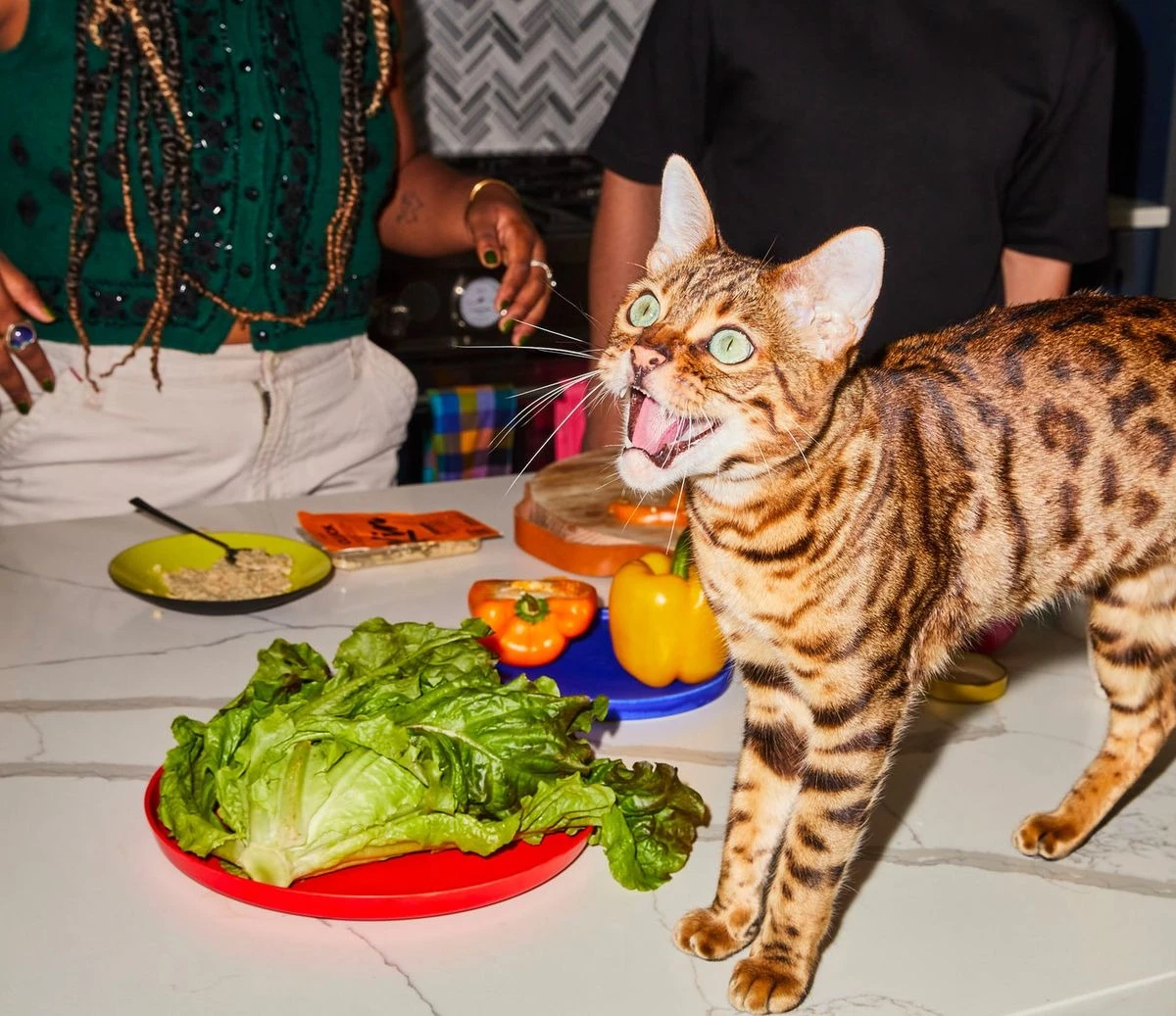 Source: Google Images
Source: Google Images
What To Do When Your Cat Refuses To Eat?
Encouraging your cats to eat is essential for their health and well-being. Whether they're sick, anxious, or simply picky, it's crucial not to resort to starving them into eating a specific type of food. Here are some tips to help your cat eat:
Consult Your Vet: If your cat's refusal to eat is due to illness, consult your veterinarian to create a suitable plan. Your vet may recommend a change in food type or consistency.
Some cats might be more inclined to eat canned foods when they are unwell. In severe cases, appetite-stimulating medications or syringe-feeding a liquid diet may be necessary.
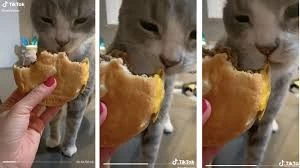 Source: Google Images
Source: Google Images
Use Appetite Stimulants: Your vet can prescribe appetite stimulants if needed, which can help stimulate your cat's hunger and interest in food.
Offer Cat-Friendly Foods: Certain foods like liver or canned tuna can entice a cat's appetite. However, offer these foods in moderation to prevent nutritional imbalances.
Commercial Canned Food: Try encouraging your cat to eat commercial canned food. You can warm it slightly or enhance it with fish oil, cat-safe broth, or cooked egg to make it more appealing. If your cat doesn't eat, remove the food and provide fresh servings later to prevent it from becoming unappetizing.
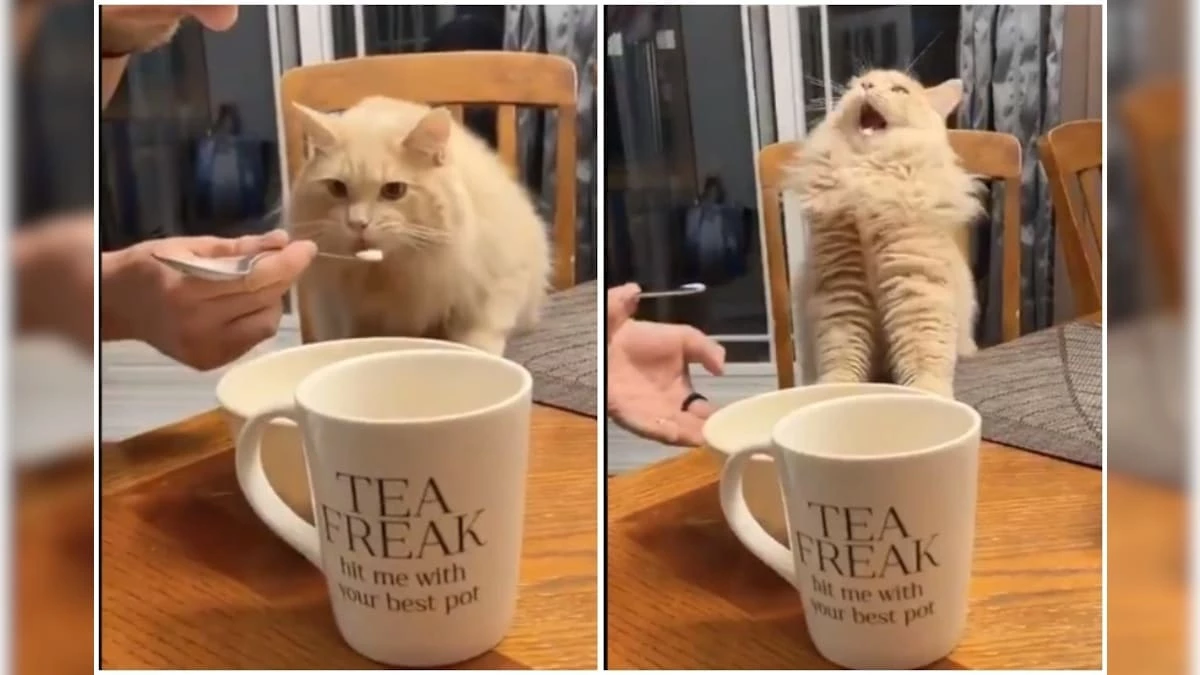 Source: Google Images
Source: Google Images
Transition Slowly: If your cat has been exclusively eating human food, transition them to cat food gradually. Mix their favorite people's food with cat food over several weeks, gradually increasing the ratio until they are solely consuming cat food.
Remember that it's essential to maintain your cat's nutrition and ensure they receive adequate nourishment. Never force-feed your cat or use starvation as a means to make them eat a specific diet. Working with your veterinarian and trying different strategies can help address your cat's eating habits effectively.
Recap: How Long Can Cats Go Without Food
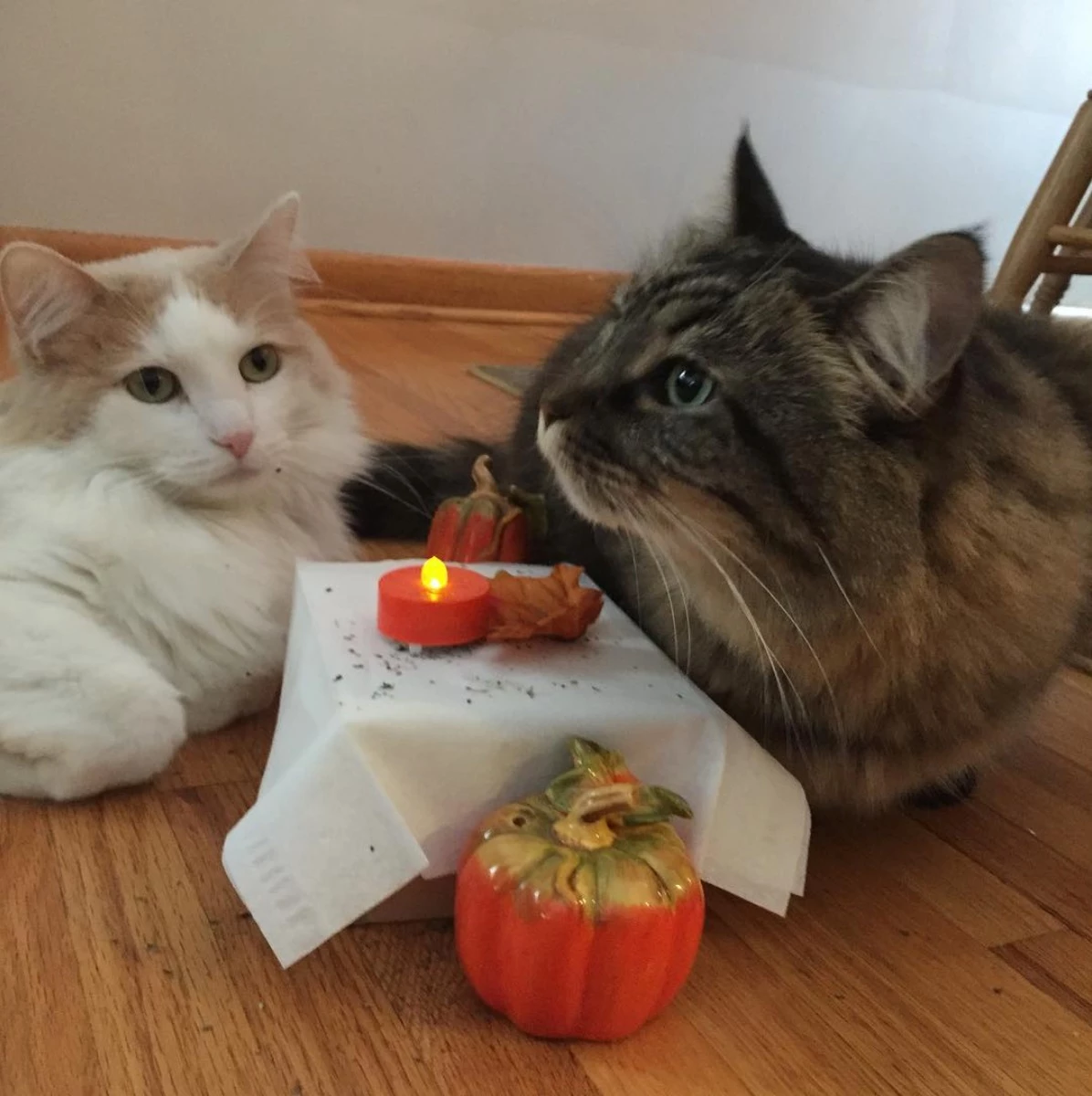 Source: Google Images
Source: Google Images
So, how long can cats go without food? Generally, the answer is anywhere from 1 to 2 weeks. Cats are carnivores and they have special needs for food, so beware to watch over your cat’s diet carefully.
In case they refuse to eat, you should consult your vet or make possible adjustments to their diet so they can eat better. Good luck kitties!